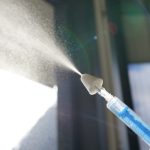UPMC Mercy was selected as one of 30 emergency department (ED) sites across the U.S. to participate in the National Institutes of Health (NIH) Helping to End Addiction Long-term (HEAL) Initiative. UPMC will contribute to the initiative through the Emergency Department-Initiated Buprenorphine Validation Network (ED-INNOVATION) Trial. The trial will test an implementation strategy aimed at guiding the development of ED-initiated treatments for opioid use disorder using the medication buprenorphine.
“Buprenorphine has been proven effective in treating opioid use disorder and reducing the likelihood of overdose death. When it is started in the ED, patients are twice as likely to get into treatment,” explained the trial’s principle investigator, Michael Lynch, M.D., assistant professor of Emergency Medicine and Toxicology, University of Pittsburgh School of Medicine, medical director of the Pittsburgh Poison Center at UPMC and Substance Use Disorder Services at UPMC Health Plan.
ED-INNOVATION will compare the effectiveness of two different formulations of buprenorphine—sublingual (given under the tongue) and an extended release, seven-day injectable formulation—in treating emergency department patients with untreated opioid use disorder over 7 days. The medication works by blocking the effects of opioids in the brain while preventing withdrawal symptoms and reducing drug cravings.
“Currently, sublingual buprenorphine is used to treat opioid use disorder at all UPMC emergency departments,” said Lynch. “UPMC Mercy’s ED has treated more than 400 individuals with the medication since November 2017 and was one of the first EDs in Pennsylvania to offer this therapy.”
Other investigators at UPMC Mercy include Anthony Pizon, M.D., chief of Medical Toxicology Division, department of Emergency Medicine; Michael Abesamis, M.D., assistant professor of Emergency Medicine; Joseph Yanta, M.D., assistant professor of Emergency Medicine; Joshua Shulman, M.D., assistant professor of Emergency Medicine; and James Huber, clinical research associate, Department of Emergency Medicine, all of the Pitt School of Medicine.
The national NIH HEAL initiative provides $945 million in total funding to support a variety of research projects aimed at addressing the opioid addiction and overdose crisis. The study is led by the National Institute on Drug Abuse (NIDA) Clinical Trials Network’s New England Consortium Node with investigators at Yale University.
Full descriptions of all the NIH HEAL Initiative programs and awards, including several from UPMC and Pitt Health Sciences, are detailed on the NIH website. To learn more about the emergency services available at UPMC, visit UPMC Emergency Medicine.








